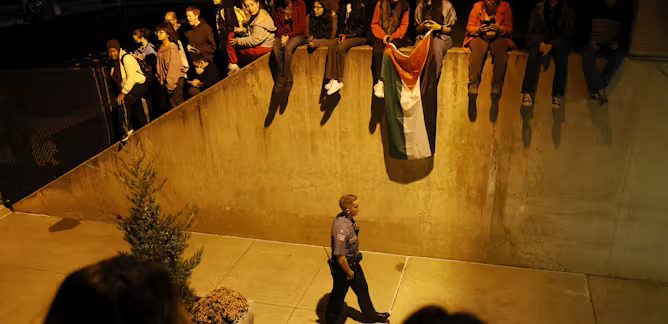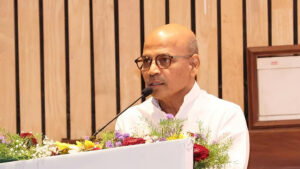In the wake of the Israel-Gaza conflict, American universities find themselves at the center of a heated debate surrounding their response to the crisis. On one hand, universities are tasked with upholding principles of academic freedom, diversity, and inclusion, while on the other, they face pressure to take a stance on contentious geopolitical issues.
In a recent podcast, experts and stakeholders explore the complex dynamics at play and the various perspectives shaping the discourse on American campuses. Key points of discussion include:
- Campus Climate and Free Speech: The Israel-Gaza conflict has sparked passionate debates and protests on college campuses, raising questions about the limits of free speech and the responsibility of universities to ensure a respectful and inclusive environment for all students, regardless of their political beliefs.
- Impact on Student Well-being: The conflict in the Middle East has deeply affected students with personal ties to the region, including those of Palestinian and Israeli descent. Universities must provide support and resources to students grappling with the emotional and psychological toll of the conflict, while also fostering constructive dialogue and understanding among diverse student populations.
- Role of Academic Institutions: As institutions dedicated to the pursuit of knowledge and critical inquiry, universities play a crucial role in facilitating informed discussions on complex geopolitical issues. However, they must navigate carefully to avoid taking sides or alienating segments of their student body, while still upholding principles of academic freedom and intellectual exchange.
- Calls for Action and Solidarity: Some students, faculty, and advocacy groups have called on universities to take a more active stance in condemning violence and advocating for peace and justice in the Israel-Palestine conflict. Others argue that universities should remain neutral and refrain from engaging in political advocacy.
- Challenges and Opportunities for Dialogue: Despite the tensions surrounding the Israel-Gaza conflict, there are opportunities for universities to foster constructive dialogue, promote understanding, and build bridges of empathy and solidarity across diverse communities. By creating spaces for respectful discourse and mutual learning, universities can play a pivotal role in advancing peace and reconciliation.
As American universities grapple with the complexities of the Israel-Gaza conflict, the podcast sheds light on the multifaceted nature of the debate and the importance of fostering an inclusive and respectful campus environment where diverse perspectives are valued and heard. Ultimately, it is through open dialogue, empathy, and understanding that universities can fulfill their mission of promoting knowledge, justice, and social change in a rapidly changing world.
Sponsored
FACTS Transcripts
Apply for a University document anywhere
https://www.factstranscript.com
Quick Transcripts for popular Universities, check your University name now and get started. We help you to get your transcript application online which is accepted for use of IRCC.
No DD, NO Paperwork. 100% Authentic, Reliable.
FACTS Transcripts Charges · Reviews · Assam Universities · Home · Know your University










